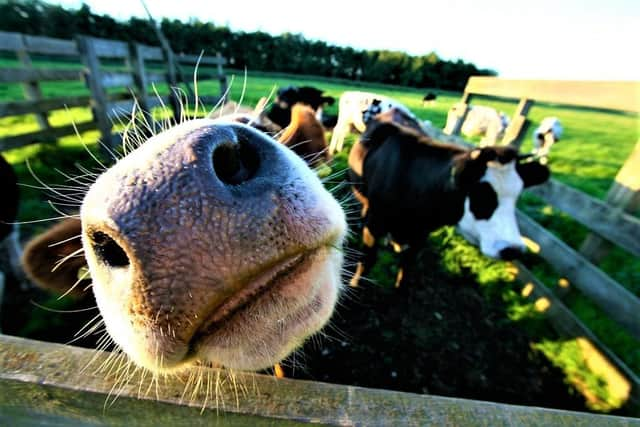Loyalist leader laments 'lack of firm stance' from UK government in face of what was a looming EU deadline on vet medicines
and live on Freeview channel 276
David Campbell said the whole episode serves to underscore the “absurdity” of the post-Brexit regime under which NI must operate.
Mr Campbell, a dairy farmer and ex-chairman of the UUP, was speaking after it was revealed late on Monday that the EU had decided to extend the period during which animal medicine can be freely sold into Northern Ireland from Great Britain.
Advertisement
Hide AdAdvertisement
Hide AdThe NI Protocol meant that the current arrangements, allowing the flow of medicines to continue just as it always has done, were due to expire on December 31.
At that point, some suppliers were expected to halt sales from GB to NI. As the government put it earlier this year, “potentially half of all veterinary medicines for a variety of animals and livestock [are] facing discontinuation”.
But with 14 days to go, on Monday the EU said that the status quo will remain in place until December 2025.
Mr Campbell – a strong opponent of the Protocol – told the News Letter: “Whilst the extension of the grace period is to be welcomed, it should not have been something that was even open to debate.
Advertisement
Hide AdAdvertisement
Hide Ad"To have one part of the United Kingdom having to seek permission from foreign, unelected officials, whilst the rest of the United Kingdom has free access to the same products, shows the constitutional absurdity of the NI Protocol.


“Frankly, I would rather have seen our government take a much firmer line and indicate that all products available in one part of our country will be available in all parts.”
Meanwhile erstwhile farming minister Edwin Poots said the extension of the grace period is indeed “welcome” – but the very fact that Brussels still holds such decision-making powers shows Northern Ireland remains “under EU rule” a full six-and-a-half years after the referendum.
He also indicated the EU extended the grace period because of the “huge consequences” in terms of adverse PR which would have followed otherwise.